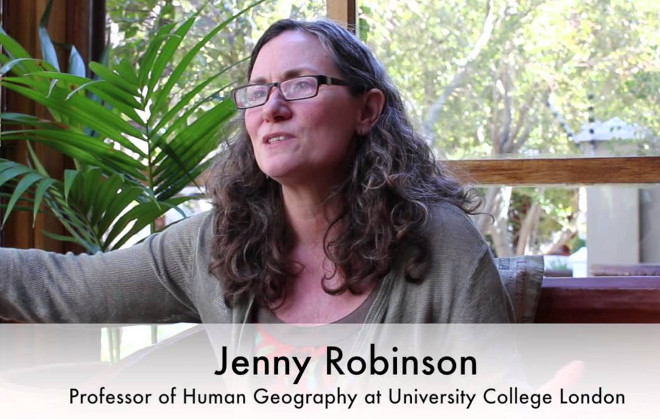There has been a strong engagement with calls to globalise urban studies, with a range of different approaches emerging. This lecture draws on a reformulated comparative methodology, oriented to the specific spatialities of urbanisation, in order to take forward current debates in global urbanism.
Firstly, I take issue with some of the ways in which the fully theoretical contribution of post-colonial interventions has been undermined by contrasting wider processes, theorisations and concepts with supposedly a-theoretical or hybridising particularisms. I will insist that building understandings of the urban from somewhere, starting from any city or any urban process, is an explicitly theoretical manoeuvre which cannot be dismissed (or embraced) as a-conceptual. At the same time, insofar as comparative methodologies rest on the radical revisability of concepts, the status of wider theoretical claims about the urban, or urbanisation processes, is always in question.
I argue that the project of decentring, or provincializing, urban studies and urban theory urgently requires that we move beyond emerging false binaries to cultivate cultures of theoretical debate which are open to diverse contributions to the field within the ambit of scholarly practices.
Secondly, I explore how comparative tactics can provide a basis for instigating new and distinctive analyses of the urban which potentially speak to the challenges of urbanisation globally, even though their reach and ambition in the first instance might be located, modest and revisable. Analytical conversations across a diverse array of urban contexts serve to keep the nature of the urban in question, as well as to produce, revitalise and expand analytical registers.
I will draw on examples here from a collaborative, comparative research project (Johannesburg, London and Shanghai) which seeks to disturb analytical segmentations across wealthier and poor contexts, put new kinds of insights emerging from these contexts into wider circulation and, in the process, destabilise key conventional repertoires of analysis. The shared work of recrafting concepts and producing urban theorizations fit for a global urban world awaits.
